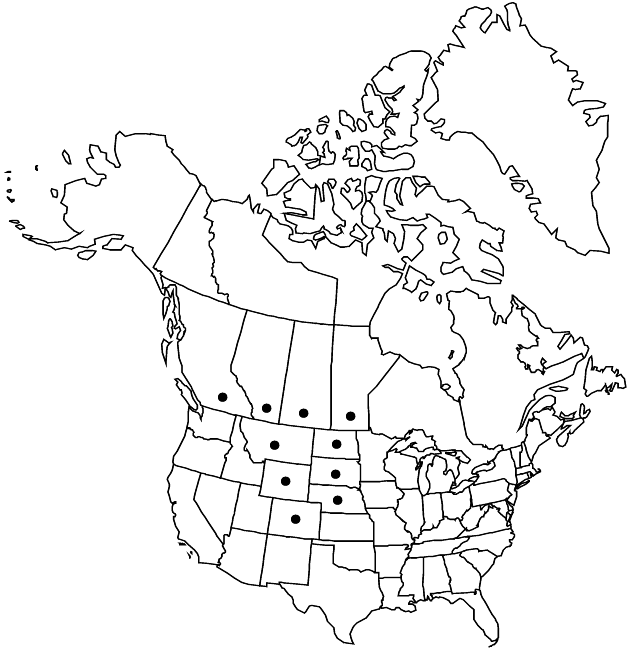familyAsteraceae
genusArtemisia
subgenusArtemisia subg. Tridentatae
speciesArtemisia cana
subspeciesArtemisia cana subsp. cana
Artemisia cana subsp. cana
Common names: Silver wormwood
IllustratedEndemic
Synonyms: Artemisia columbiensis Nuttall
Revision as of 20:41, 27 May 2020 by imported>Volume Importer
Shrubs, 100–150 cm. Stems white to light gray or brown. Leaves whitish gray, blades narrowly elliptic to lanceolate, 2–8 × 0.3–1 cm, usually entire, sometimes irregularly lobed, densely silvery-canescent. Heads in (leafy) arrays 10–20 × 5–7 cm. Involucres broadly campanulate, 3–4 × 3–5 mm. Phyllaries broadly ovate (mostly obtuse), densely hairy. Florets 10–20. Cypselae 1–1.2 mm. 2n = 54.
Phenology: Flowering mid–late summer.
Habitat: Sandy loam soils, often along streams
Elevation: 1000–1500 m
Distribution

Alta., B.C., Man., Sask., Colo., Mont., Nebr., N.Dak., S.Dak., Wyo.
Discussion
Subspecies cana is found primarily in the grasslands of Canada and the west-central United States. It is unusual within the species in that there is no morphologic evidence of hybridization with other species in subg. Tridentatae.
Selected References
None.
Lower Taxa
None.
